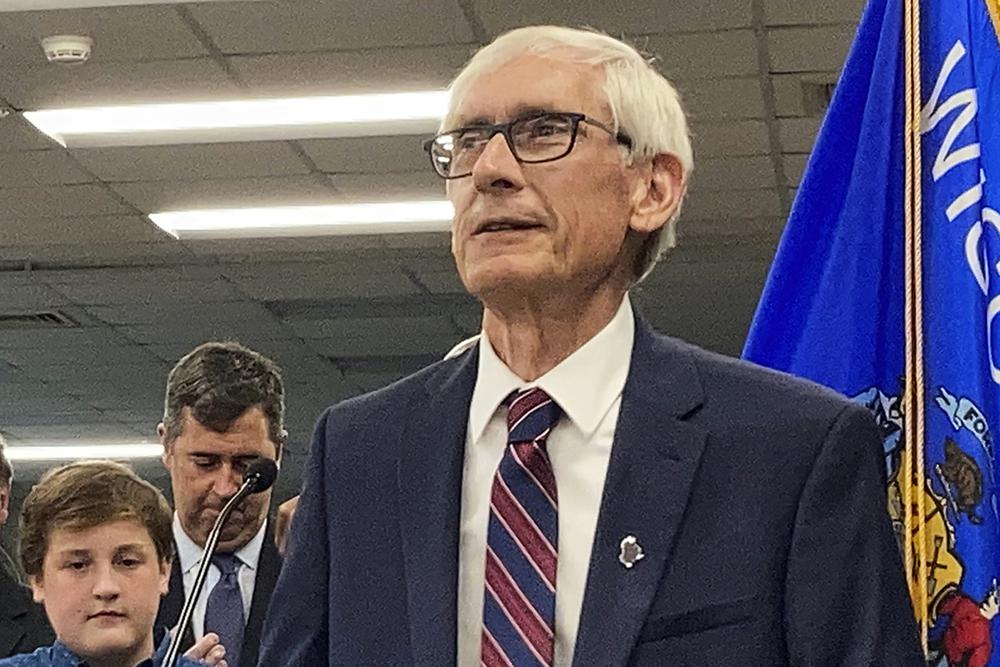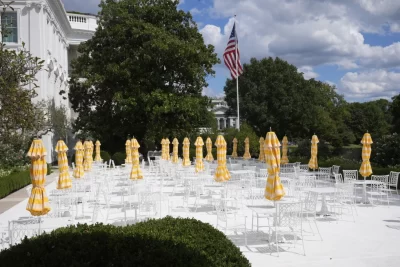
Wisconsin Gov. Tony Evers was in a familiar spot earlier this month when Republican legislators sent him a bill that would have banned anti-racist teachings in schools. For the 66th time since taking office in 2019, he pulled out his veto pen.
The rejection was the latest reminder of the crucial role Evers and a select group of fellow Democratic governors play in some of the most politically divided states. They are the only backstop against a wave of GOP-backed legislation targeting everything from abortion rights and school curricula to access to voting.
“I have to prevent some really bad things from happening,” Evers said in an interview. “It is a bit lonely, but I know I’m representing the people of Wisconsin.”
Wisconsin is one of four states emerging as top priorities for Democrats in an election year when the party is facing fierce political headwinds. In those states — Kansas, Michigan, Pennsylvania and Wisconsin — Republicans control the state Legislatures and Democratic-held governorships are on the ballot in the fall.
If the governorships switch parties, a flood of GOP legislation that has so far been blocked would likely become law. That’s especially concerning for Democrats when it comes to voting rights. The four incumbents — Evers, Kansas Gov. Laura Kelly, Michigan Gov. Gretchen Whitmer and Pennsylvania Gov. Tom Wolf — have vetoed more than a dozen bills aimed at restricting voting.
Those moves were particularly important in Wisconsin, Pennsylvania and Michigan, all narrowly divided states that could decide the 2024 presidential election. If Republicans win the governor’s race in any of those states, they will almost certainly approve voting restrictions that have so far been rejected.
In Wisconsin, for example, the Legislature is fast-tracking a host of bills changing election administration and voting rules, all of which Evers is expected to veto but that other Republican candidates for governor support.
Governors also have an important role in the mechanics of presidential elections — under federal law, the electors they say reflect the winners of their state get extra weight in any congressional fight over certifying the choice of the next president. That means in more extreme scenarios, GOP governors may seek to reject Democratic electors in a presidential race, a step then-President Donald Trump pressed some Republicans to take in 2020.
Many GOP candidates running for governor this year have expressed support for Trump’s lie that the last election was stolen. In Wisconsin last week, state Rep. Timothy Ramthun, a conspiracy theorist who was disciplined by Republican leadership over false election claims, filed paperwork to run for governor.




